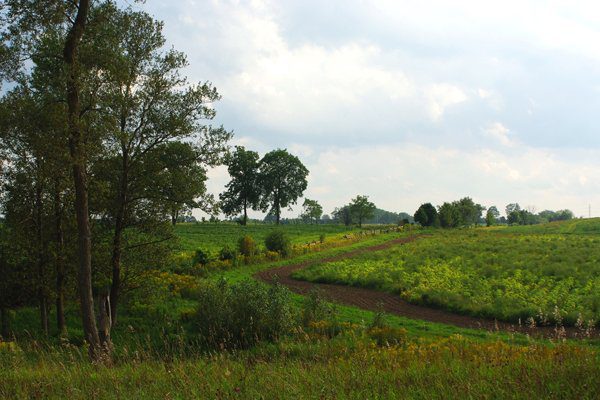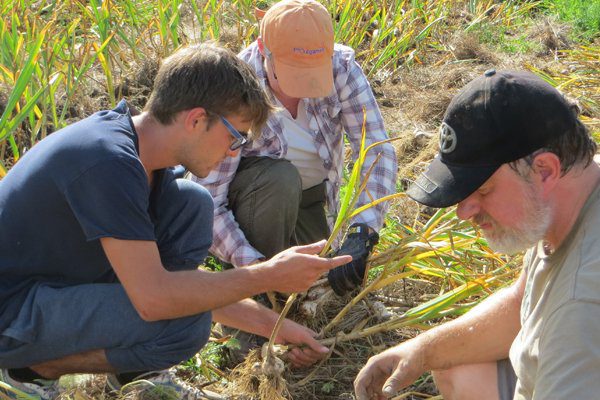Growing your own food has transformative benefits for communities and our planet. Eating local and seasonal produce reduces carbon emissions, and organic farming cuts down pesticide pollution. More importantly, growing our own food reinforces our connection to the Earth and our responsibility to care for the Earth as it cares for us.
While most of us can’t grow all of the food we need, community farms and gardens can supplement our diets with fresh produce.
Start a community garden
The farm at Ignatius Jesuit Centre in Guelph, Ontario, is a hub for community farming and education. Ignatius farm grows and sells produce year-round, and it offers rented plots for community members who want to manage their own gardens. Through in-person and online trainings, Ignatius Farm teaches people of all ages how to grow their own food.


With their partners, the Ecological Farmers Association of Ontario and Everdale, Ignatius Farm runs an online New Farmer Training Program. In Term 1, you’ll learn gardening basics like how to grow organic produce, botany, soil health, and pest and disease management.
Get a taste of the course with their 90-minute webinar, Introduction to organic growing, and Ten Steps to Starting a Community Garden.
Eating seasonally
If gardening is not available to you, consider joining a Community Supported Agriculture (CSA) program. Through CSAs, you can order seasonal produce from local farmers. Find a CSA near you.
